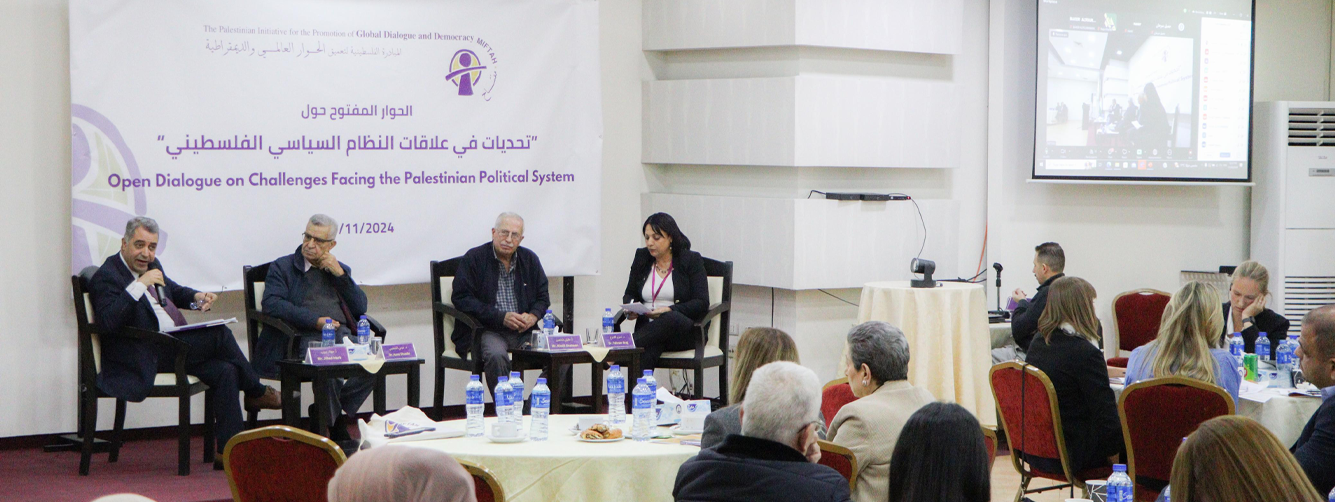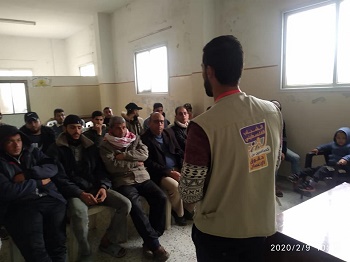
Ramallah – 10/6/2020 – MIFTAH recently capped off a series of interventions as part of the second phase of its project “Youth as human rights defenders”, which it implements with EU support in Jerusalem, Hebron and the Gaza Strip. All levels of practical training were completed for 30 defenders in the three areas, distributed as follows: Nine defenders in Jerusalem (four males, five females), six defenders in Hebron (one male, five females) and 15 defenders in the Gaza Strip (9 males, six females). This follows the theoretical training they received during the first phase on building their capacities in the field of monitoring and documenting human rights violations and developing various documentation tools (surveys, testimonies, field reports) on rights pertaining to education, freedom of movement, housing, worship, work and health.
MIFTAH completed all contractual procedures with the five host human rights institutions in Jerusalem, Hebron and the Gaza Strip. They provided the human rights defenders with support in monitoring and documentation, report-writing, follow-up on data and documentation collection and saving and offered them assistance in holding meetings with local and international parties and institutions dealing with these violations. The host institutions included Al Quds University Community Action Center, the Jerusalem Legal Aid and Human Rights Center in Jerusalem, the Hebron Reconstruction Committee in the Old City of Hebron, the Mustaqbal Association in the northern Gaza Strip and Dia’ Al Ghad Society in the southern Gaza Strip. Necessary assistance was offered to the institutions to support the defenders and facilitate their work at the technical and logistical levels in terms of monitoring and documentation and lobbying and advocacy campaigns.
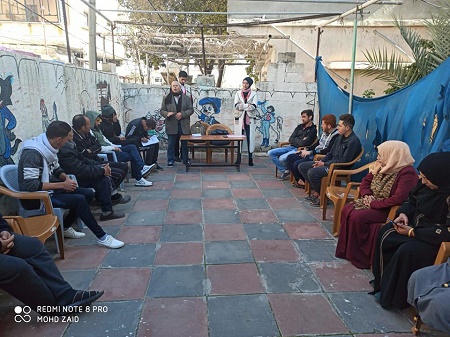
The human rights defenders were able to document over 700 violations in Jerusalem, Hebron and the Gaza Strip including violations against the right to education, the right to worship, freedom of cultural and religious rights and residency rights in Jerusalem and Hebron. they also documented violations to health and labor rights in the Gaza Strip.
A total of six quarterly reports were released on these violations, two reports per region, which illustrated the legal foundation for the occupied Palestinian territory and the basis of rights being violated according to international laws and treaties, which were inferred to in a number of the defenders’ documentations and confirmed by facts and figures. Furthermore, several recommendations were made to local and international human rights organizations that would contribute to integrating Palestinian youth in local and international advocacy efforts for Palestinian rights, especially among marginalized sectors such as women, children, farmers and fishermen. The overall objective of this effort is to include youth in national dialogues and on international platforms.
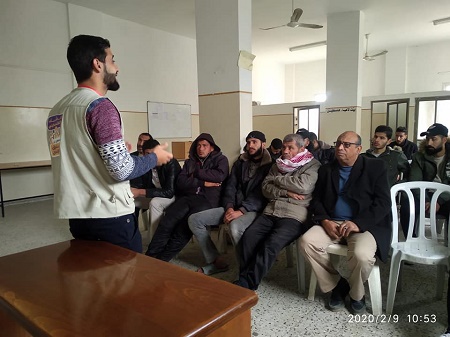
The results and recommendations from the quarterly reports were showcased in dialogue sessions in Jerusalem, Hebron and the Gaza Strip , which included various international and national parties. The sessions included representatives from 71 of these institutions in addition to several sessions for awareness-raising that targeted local communities in order to highlight the role of youth as human rights defenders. A total of 119 participants took part in these sessions. They were conducted within the context of developing practical measures for the defense of the human rights system in the occupied Palestinian territory and to benefit from the outputs of these sessions in lobbying and advocacy campaigns carried out by youth in their respective areas.
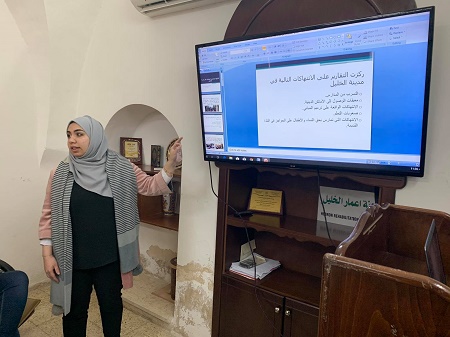
Moreover, the annual analysis report was released, which analyses the legal and rights framework for the violations documented by the youth from the perspective of international human rights law and international humanitarian law. The statistics and numbers in this report reflected indicators that confirm the overall ongoing policy of rights violations against Palestinians in the specific areas. They measured the impact of the continued escalation of these violations on the human rights system and on the various sectors (education, health, cultural institutions, religious freedoms, the right to work) in order to highlight Israeli policies that negatively impact human rights and then put forth the necessary recommendations. This is in addition to providing indicators on policies and measures that infringe on the Palestinians’ cultural and religious rights, their right to education, health and work, which is considered a violation of the foundations of international humanitarian law and of international human rights law. The report will be supported by a factsheet that showcases the various violations of these rights in general in the areas targeted in this project.
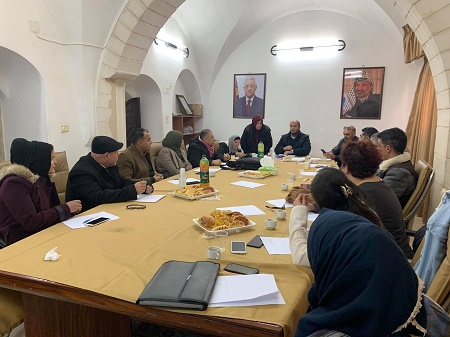
MIFTAH completed its interventions as part of Phase Two of its project, “Youth as human rights defenders” in which it trained groups of defenders in the West Bank and Gaza Strip in the field of advocacy and lobbying campaigns and in preparing digital campaigns through social media. The training resulted in plans for three advocacy and lobbying campaigns: the first is in Jerusalem, entitled “We are the original children”. The objective of this campaign is to highlight the role of human rights defenders in defending Palestinian national and cultural identity in Jerusalem. This is a digital campaign that amplifies the voice of youth and contributes to disseminating the Palestinian narrative at the international, local and community levels on the importance of preserving the Palestinian national curriculum in schools and protecting the educational sector from attempts to Israelize it. It also sheds light on the grave impact of house arrests imposed on Jerusalemite children, their education and the disruption of their everyday lives. Furthermore, the campaign highlights the policy of house demolitions and its direct impact on women and children in particular. Two factsheets were compiled on this topic: the first is on house demolitions in Jerusalem since the inception of the occupation and the socio-psychological and educational impact it has on those affected especially women; second paper showcases the number of Palestinian children who were subject to house arrest and the direct impact it had on their education and socio-psychological state.
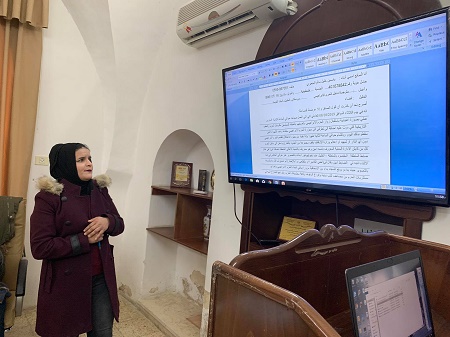
The second campaign in Hebron is entitled “100 checkpoints” and sheds light on the suffering of Palestinians who live in the old city and around the Ibrahimi Mosque, where there are Israeli 100 checkpoints and military posts. These checkpoints constitute ongoing violations of Palestinian freedom of movement and their religious freedom and worship. What’s more, they have stifled tourism and commercial activity inside the old city to the point that many stores have been forced to close. The checkpoints are also the cause of ongoing violations against educational rights for students and teachers. The numerous checkpoints at the gates and en route to schools in the old city have created an unsafe educational environment and resulted in a large drop in the number of enrolled students in these schools.
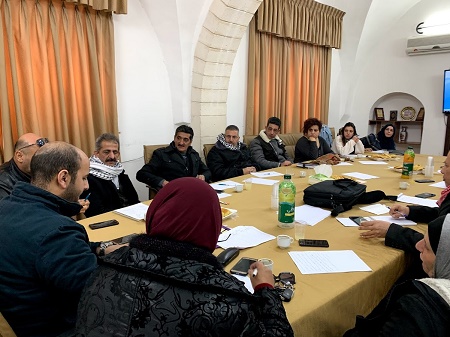
A third plan has been developed for a campaign in the Gaza Strip entitled “Be safe and sound”. This campaign focuses on defending the right to health and to work in a safe environment by calling on international institutions to provide international protection to fishermen and farmers in the Gaza Strip’s border areas and within the nautical fishing range off Gaza’s coast. Here, Israeli gunboats often assault fishermen, forcing them out of the water and putting their lives in danger. For farmers, the campaign calls for the provision of special labs for soil and product testing given the frequency in which Israeli occupation forces shell these farmlands and spray unknown pesticides on them, poisoning crops and ruining the soil. Another demand of the campaign is to provide medical posts close to residents in areas where their farmland is constantly under fire.
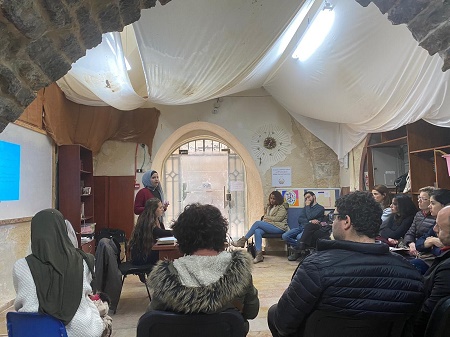
MIFTAH also participated in the preparation of a report on Israeli occupation violations against education in Jerusalem in partnership with Palestinian human rights organizations, which was presented to the UN Human Rights rapporteur. This was part of MIFTAH’s preparation to participate in the 43rd session of the UN Human Rights Council in Geneva in March, 2020, but which was suspended because of the Covid-19 pandemic.
The report showcased Israeli violations against the education sector in Jerusalem and their threat to the Palestinian national and cultural legacy in the city as part of Israel’s attempts to completely Israelize the education sector and impose its colonialist identity on it. As a result, Palestinian students have been barred from studying the national curriculum, which coincides with their national identity and cultural legacy .
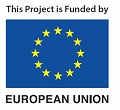 |













